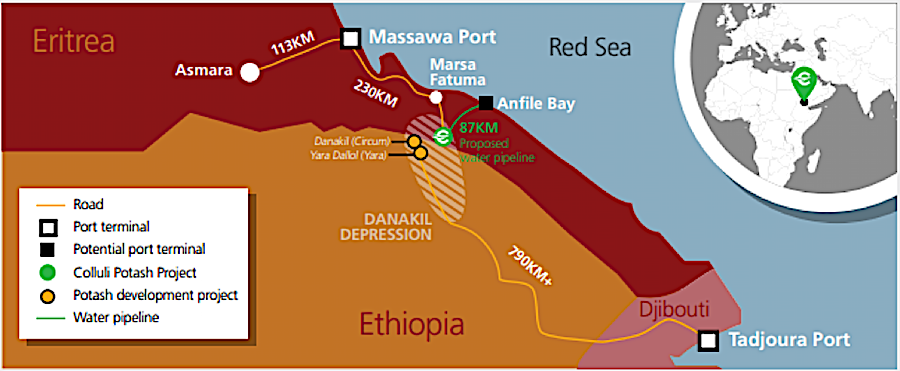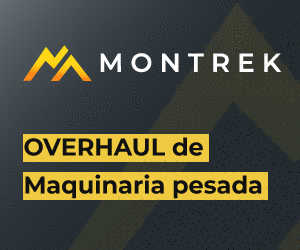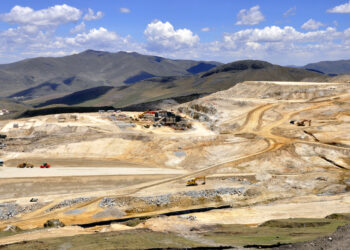Australia’s Danakali (ASX, LON:DNK) has kicked off the first phase of development of its world-class Colluli potash project in Eritrea, Africa, by selecting the team in charge of Engineering, Procurement and Construction Management (EPCM) process.
The Perth-based miner said it expected to begin Phase 2 in mid-February, which will be followed by geotechnical investigation works that is set to start in March.
Danakali is working with consultancy DRA Global and
multinational professional services company Turner and Townsend to review the project
front-end engineering design. This includes developing project systems, project
controls and progress measurement monitoring, it said.
Colluli has the potential to produce 944,000 tonnes of sop, a premium grade fertilizer, over its 200-year plus mine-life.
The team has also begun project management activities and mobilized its own engineering group for the process plant, associated infrastructure and Water Intake Area (WITA) design.
Colluli, a 50:50 joint venture between Danakali and the
Eritrean National Mining Corporation (ENAMCO), has been called “a game changer”
for Eritrea’s economy, as it’s expected to become one of the world’s most
significant and lowest cost sources of sulphate of potash (SOP), a premium
grade fertilizer.
“The government will benefit from the longer-term development of the project, and the expected significant boost to royalties, taxation and exports, and from jobs and skills and economic development of the region,” chief executive, Niels Wage told MINING.COM last year.
The development of the Colluli potash projects coincides with the move towards diplomatic relations between the once feuding countries of Eritrea and Ethiopia, which officially declared peace in July last year.
Welcome boost
A United Nations report published last year suggested that Colluli could
significantly boost the economy of Eritrea, a country that, until last year,
was on the UN’s sanctions list.
The document estimated that Colluli would contribute 3% of the country’s GDP by 2021 and 50% of the nation’s exports by 2030, while providing 10,000 direct and indirect local jobs.
It also identified how the mine could help Eritrea advance its sustainable development agenda, which are 13 priority Sustainable Development Goals (SDGs). These include: no poverty, zero hunger, quality education, gender equality, clean water and sanitation, sustainable economic growth and decent work, industry, innovation and infrastructure, reduced inequalities, climate action, peace, justice and strong institutions and partnerships for the SDGs.

In the initial phase of operation, Wage said, Colluli would produce more than 472,000 tonnes a year of SOP. Annual output could rise to almost 944,000 tonnes if Danakali decides to go ahead with a second phase of development, as the project has a possible 200-year plus mine-life.
The asset has the potential to produce other fertilizer products, such as Sulphate of Potash Magnesium (SOP-M), muriate of potash (MOP) and gypsum, along with rock salt. There is also potential for kieserite and mag chloride to be commercialized with minimal further processing required.














